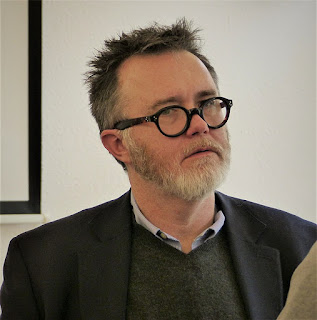As this is a blog which be definition would mainly be of interest to readers, every new year I have had a tradition that I list the books I read the previous year. This year I managed 54 titles, up from 47 in 2021.
Many of the books I read are in connection with serving as a judge for the Prometheus Award. While I read pretty widely, I also tend to read in several concentrated interests: Robert Anton Wilson and the writers Wilson has influenced; history with a concentration on ancient history and late antiquity; favorite mystery writers, and reading books by particular authors who are favorites of mine, e.g. in the past year, that would include Neal Stephenson, Tom Perrotta and Vladimir Nabokov. I have been reading Nabokov for most of my life, reading another title every couple of years or so.
Some recommendations: Termination Shock is a really good Stephenson novel about an engineered solution to global warming. The Goblin Emperor by Katherine Addison is a fine fantasy novel. The Great Air Race by John Lancaster is the best book about aviation I've ever read. Purgatory Mount by Adam Roberts, The School for Good Mothers by Jessamine Chan, Three Miles Down by Harry Turtledove and Project Hail Mary by Andy Weir are all good science fiction novels. I liked the Ada Palmer novel, too, but it won't make much sense unless you've read the previous novels in the series. If you've never tried Too Like the Lighning, the first book in Palmer's Terra Ignota series, you should consider giving it a try.
1. Termination Shock, Neal Stephenson.
2. Rich Man's Sky, Wil McCarthy.
3. Road Kill, R.J. Norgard
4. Purgatory Mount, Adam Roberts.
5. Man in the Middle, Steve Wire.
6. Titan, Robert Kroese.
7. White Hat, Steve Wire.
8. Between Home and Ruin, Karl Gallagher.
9. Project Hail Mary, Andy Weir.
10. Seize What's Held Dear, Karl Gallagher.
11. Sainthood in Sixty Seconds, Dr. Insensitive Jerk.
12. How I Found Freedom in an Unfree World, Harry Browne.
13. Dmitry Shostakovich, Pauline Fairclough.
14. The Fall of Rome and the End of Civilization, Bryan Ward-Perkins.
15. Perhaps the Stars, Ada Palmer.
16. Saucers, Spooks and Kooks: UFO Disinformation in the Age of Aquarius, Adam Gorightly.
17. Patricians and Emperors: The Last Rulers of the Roman Empire, Ian Hughes.
18. Inventor of the Future: The Visionary Life of Buckminster Fuller, Alec Nevala-Lee.
19. Stalingrad, the Fateful Siege, 1942-1943, Anthony Beevor.
20. Wilhelm Reich in Hell, Robert Anton Wilson.
21. The Burglar Who Liked to Quote Kipling, Lawrence Block.
22. The End of Roman Britain, Michael E. Jones.
23. Tracy Flick Can't Win, Tom Perrotta.
24. The Death of Mrs. Westaway, Ruth Ware.
25. Something New, P.G. Wodehouse.
26. Around the World in 80 Books, David Damrosch.
27. Sunset Blues, Bob Adamov.
28. The Goblin Emperor, Katherine Addison.
29. Vikings in America, Graeme Davis.
30. Pnin, Vladimir Nabokov.
31. Big White Ghetto: Dead Broke, Stone-Cold Stupid, and High on Rage in the Dank Woolly Wilds of the "Real America", Kevin Williamson.
32. The Future Starts Here: Adventures in the Twenty-First Century, John Higgs.
33. Robert Heinlein's Expanded Universe, Volume One, Robert Heinlein.
34. Robert Heinlein's Expanded Universe, Volume Two, Robert Heinlein.
35. Prometheus Rising, Robert Anton Wilson.
36. Travis, Texas, Gary Harmon.
37. Weird Comix #2, Bobby Campbell.
38. The School for Good Mothers, Jessamine Chan.
39. Nine Lives, Peter Swanson.
40. SPQR: A History of Ancient Rome, Mary Beard.
41. The Truth (Discworld #25), Terry Pratchett.
42. Watchmen, Alan Moore.
43. Captain Trader Helmsman Spy, Karl Gallagher.
44. Every Vow You Break, Peter Swanson.
45. The Three Apostles of Russian Music: The Soviet Avant-Garde, Gregor Tassie.
46. Openings: Book 1 of the Hayek Chronicles, James Peet.
47. The Great Air Race: Glory, Tragedy, and the Dawn of American Aviation, John Lancaster.
48. Vaccinated: One Man's Quest to Defeat the World's Deadliest Diseases, Paul A. Offitt.
49. Three Miles Down, Harry Turtledove.
50. Pan Am, Florida, Lynn M. Homan.
51. Let Us Tell You Again, Mackey Chandler.
52. Constantius III: Rome's Lost Hope, Ian Hughes.
53. The Crossing, Kevin Ikenberry.
54. A Mind at Play: How Claude Shannon Invented the Information Age, Jimmy Soni and Rob Goodman.








.jpg)



















